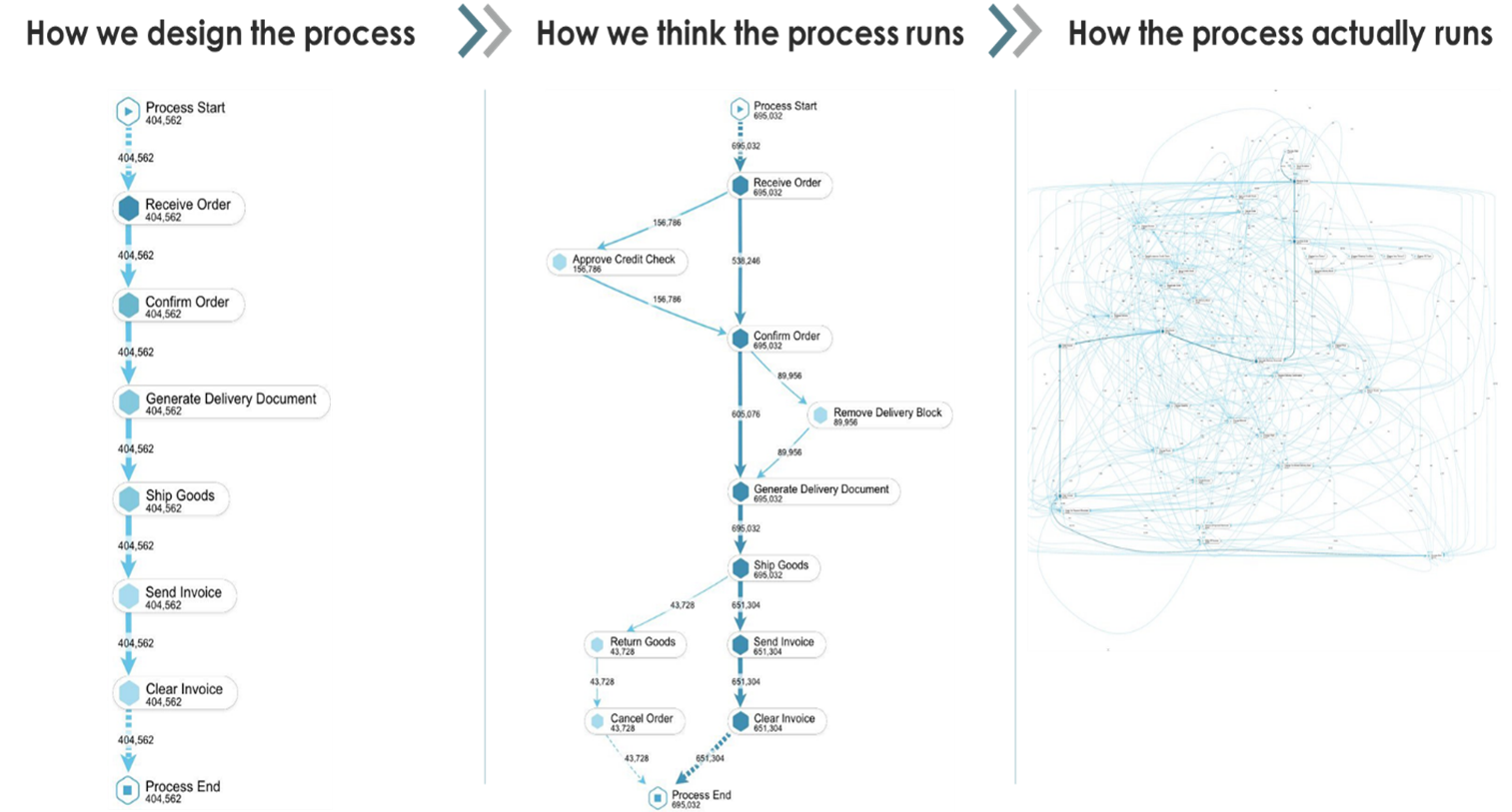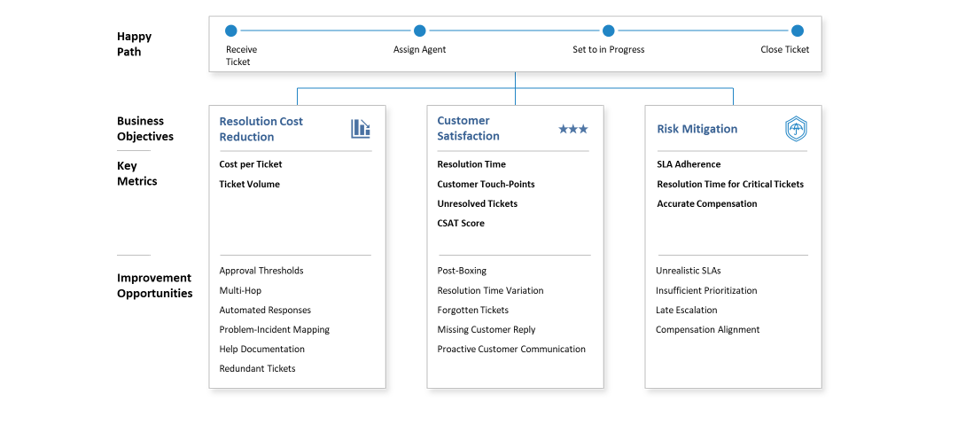• Process Mining is an analytical method that can be used to improve business processes.
• Enabling business owners to drill down the root causes of deviations, bottlenecks, and process variations.
• Applied at hundreds of organizations across many sectors, including Banking, Manufacturing, Telecoms and Healthcare.
• Organizations reduced the time required to run processes. This has resulted in reduced costs and better customer experience.

One Process Mining Sector Study performed by an Independent third-party firm in January 2020 revealed that:
• 78% believe Process Mining is a Critical or an Important Enabler for RPA
• 90% use Process Mining for more than process mapping
• 50% want to see Process Mining feed directly into RPA
To enable end-to-end automation, and to scale and accelerate RPA, a systematic process discovery and process assessment are important, as it:
• Provides a holistic view to discover and prioritize automations to maximize ROI
• Enables continuous improvement through understanding of the end-to-end process, and continuously optimize interactions between bots and people
• Democratizes automation process by empowering employees to drive grass-root level efforts
Reality of any enterprise-level process:
 Source: Celonis
Source: CelonisA typical client is prepared with:
1. Recognition and Awareness of the Opportunity:
• Complex value chains are driven by many interdependent processes
• Complex, fragmented systems are supporting the process
• Lack of visibility into AS-IS process exists and its compliance to standards is unknown
2. Well-established, well-aligned Business Goal:
• Process improvement is an established organizational priority, and is aligned with strategic annual objectives at organizational level
• Process owners are held responsible to drive better outcomes
• Resources are aligned to meet the business goals
Are you ready?
Process Mining benefits:
• Identifying true business problems in real-time
• Visualizing business process flows and charts based on the actual value-stream or transaction-processing
• Understand process variance and adherence or compliance to standard process
• Detecting the source of bottlenecks and delays
• Replacing opinions, one-off observations and anecdotal with hard facts and data
• Improving process efficiency and reducing costs
• Saving processing time or value delivery time, and releasing working capital
• Monitoring of real-time process performance before, during and after the improvement efforts, enabling continuous improvement, and identifying next-best-action for course correction
Below is a quick comparison between Traditional Method and Process Mining:
| Traditional Method | Process Mining |
|---|---|
| Subjective | Objective |
| Time-consuming | Instant |
| Resource-heavy | High ROI |
| Looking at one specific point in time | Continuous and Predictive |
| Hard to visualize | Automatic Visualization |
Key components:
Process mining can be applied to, essentially, any process, any function, in any industry.
Typical use cases include performance reporting, digital transformation or automation, auditing and compliance, process improvement.
|
Process Visualization |
Performance Reporting and Analysis |
Process Efficiency Improvements |
Process Standardization |
|
|
|
|
Methodology:
Processes are forced to run across a rigid and fragmented technology landscape, so how can you use operational data to drive better business results?
1. Connect Data
It uses the event data that is already available in your IT systems (ERP, CRM, BPM) using data connectors
2. Discover Processes
Process Analyzer visualizes as-is process flows so you can see how your processes really work
Measure capacity, see how processes really run, and identify gaps
3. Analyze Root Causes
Root Cause Analyzer reveals causes of process inefficiencies and bottlenecks
Know which gaps have the greatest impact, and what’s the right course of action
4. Optimize and Automate processes
Identify processes that are suitable for automation, standardization, optimization, or other improvement efforts Act to remove gaps in real-time and unlock your capacity
5. Monitor Key Performance Indicators
Keep monitoring your KPIs continuously to ensure that your strategic objectives are met
Generic use cases:
How to leverage Process Mining in Customer Service function:
• Focus on clients’ requests, pain points, interactions, touchpoints, and fulfilment
• Follow touchpoints by following the end-to-end event log on all applicable systems (a digital breadcrumb trail)
• Connect all interactions and events together to ascertain who all are involved, and what has been to fulfil customer request
• Identify failure points and address them

Source: Celonis
Process Refining:
In the same way that all valuables that are mined need to be refined before they can truly shine, Process Refining for Automation takes in results from Process Mining or occupational charts and churns out a potential Robotic Process Automation project for the organization through an occupation-centric approach.
Companies that use SAP will draw the most benefit from Process Refining, as it has been created thinking of tasks and roles specific to SAP processes. For these companies, we discover automation potential quickly and in a highly adaptable manner, using our suite of accelerators.
Process Mining enables Digital Twins: